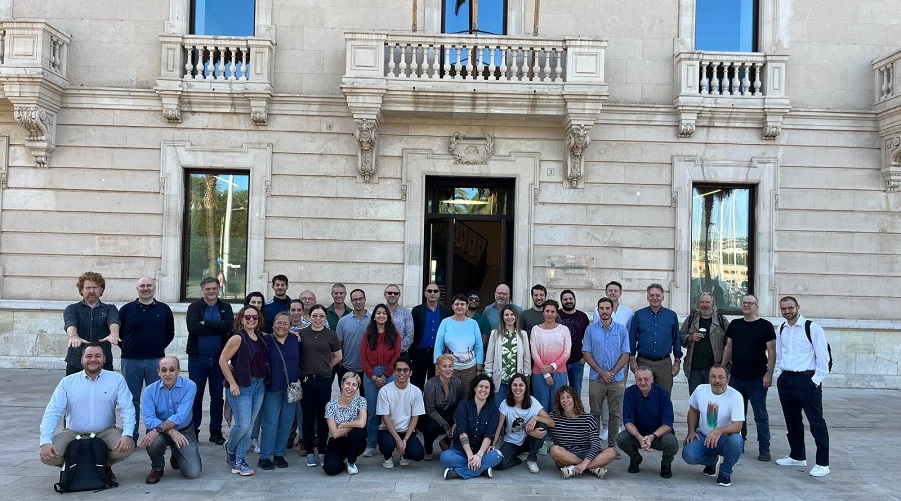
Participants of the EcoScope general meeting at the Balearic Oceanographic Centre of the Spanish Institute of Oceanography in Palma de Mallorca. Photo by EcoScope.
The Sea Around Us project manager, Dr. Maria ‘Deng’ Palomares, and Advisory Board vice-chair, Athanasios Tsikliras, participated in the 2024 general assembly of the project Ecocentric Management for Sustainable Fisheries and Healthy Marine Ecosystems (EcoScope).
The four-day meeting took place on the first week of November at the Balearic Oceanographic Centre of the Spanish Institute of Oceanography in Palma de Mallorca, Spain. Forty-six researchers from 11 countries – Canada, Norway, Germany, the UK, Italy, Greece, Belgium, the Netherlands, Israel, Bulgaria and Spain – attended the event.
As the four-year project approaches its final milestones in 2025, the researchers involved presented the results of their work addressing the degradation of ecosystems and the anthropogenic impact caused by the unsustainable exploitation of fisheries in several European seas.
Dr. Palomares, together with collaborator Santiago de la Puente, participated in discussions to identify indicators that show how European countries are responding to the need to manage the sustainability of marine resources in the EcoScope project study sites.
These indicators are built on the foundation of the Sea Around Us, ICES and FAO datasets and include catch data, subsidies data, percentage of unreported catches by sector (including discard rates) and by end-use, percentage of the catch that is trawled or dredged, value of unreported catches by artisanal and industrial fleets, and how much of this value is lost via discards. The extent to which governance interventions respond to these indicators is one of the project’s main deliverables.
Additional results showcased by other researchers include Ecopath with Ecosim (EwE) ecosystem models for each case study. The presenters also proposed tools for improving these models, such as incorporating marine protected areas and having ample access to databases, such as those of the Sea Around Us, FishBase and SeaLifeBase.
The end goal of the models is to promote efficient, holistic, sustainable and eco-centric fisheries management that will help restore the balance between food security and healthy seas.
As Dr. Tsikliras – also the EcoScope coordinator – explained in this video, these objectives will be supported by the ongoing development of a decision-making platform, a series of online courses and a mobile application, all of which will be publicly available.
The results of all the work packages connected to the EcoScope project will also be part of a policy brief aimed at the entire European Union.

